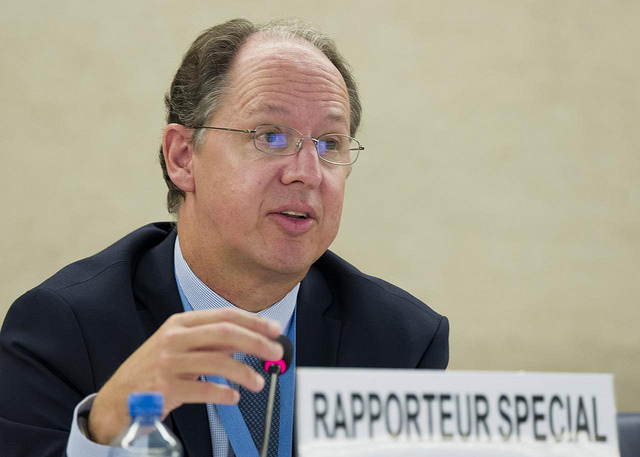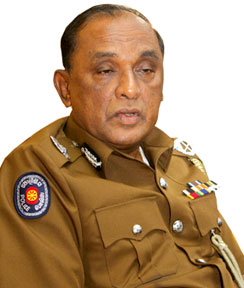![]()
UN High Commissioner for Human Rights Michelle Bachelet raised concerns over the targeting of Muslims and harassment of Tamils by the Sri Lankan government, as she opened the 47th session of the UN Human Rights Council in Geneva earlier today.
Targeted harassment
Commenting on the deterioration of human rights in Sri Lanka, Bachelet highlighted the “harassment of Tamils, including in the context of commemoration events for those who died at the end of the war”.
The statement follows a brutal crackdown and surveillance of Tamil civilians and politicians commemorating Mullaivaikkal Remembrance Day, also known as Genocide Remembrance Day. Prior to the day, Sri Lanka’s army imposed a lockdown on several areas in Mullaitivu and harassed journalists who were passing through. On the day, Tamil politicians, such as Peter Ilancheliyan, were subject to harassment and surveillance by the Sri Lankan army as he attempted to commemorate the event.
Read more here: Sri Lankan military and police harass Tamil politician throughout Tamil Genocide Day

Last September, UN Special Rapporteur, Pablo de Greiff, highlighted that this continued erasure of Tamil memory has exacerbated “trauma and tensions”. He further noted that at the local level;
“Surveillance, intimidation and arrests continue to hamper memorialization activities; family members of victims do not have access to memorials and monuments, some of which have been deliberately destroyed; and the prohibition on the memorialization of fallen Tamil Tigers persists”.
“Grieving families have expressed the need to bury or destroy photographs of their deceased loved ones in uniform for fear of harassment by the security forces” he adds.
Muslims in Sri Lanka have also faced increased persecution with the government approving the ban of the burqa, banning Islamic organisations, and closing Islamic schools.
Office of Missing Persons

In her statement, Bachelet also raises concerns over “recent appointments to the Office of Missing Persons and Office for Reparations”.
On 20 May, former Inspector General of Police, Hapu Arachchige Jayantha Shantha Kumara Wickremaratne was appointed to the Office of Missing Persons despite widespread outcry.
"It’s hard to make this up – the man who was in charge of three police units named by the United Nations investigation as involved in mass enforced disappearances at the end of the war is now investigating the disappearances himself," commented, Executive Director of the International Truth and Justice Project, Yasmin Sooka.
She added:
"This is a top state official who is at risk of universal jurisdiction cases if he travelled abroad for his command role in gross violations of human rights like systematic police torture,”
The Office of Reparations has also been militarised by the appointment of retired Major General Waduge Palitha Piyasiri Fernando, a close ally of President Gotabaya Rajapaksa.
Attacks on investigations
![]() Bachelet also raised concerns over the attempts of the Sri Lankan government “to discourage investigations into past crimes” which “are further undermining victims' trust”.
Bachelet also raised concerns over the attempts of the Sri Lankan government “to discourage investigations into past crimes” which “are further undermining victims' trust”.
At the start of last year, the Rajapaksa administration established a Commission of Inquiry (COI) to Investigate Allegations of Political Victimization and to derail investigations of the Rajapaksa family and allies begun by the previous administration in 2015-19.
Human Rights Watch criticised the commission noting that it “seeks to block investigations and prosecutions in emblematic human rights cases, overturn a murder conviction, reinstate security force members disciplined for serious misconduct, and protect Rajapaksa family members and others from investigations into fraud and money laundering”.
Ian Seiderman, legal and policy director for the International Commission of Jurists, slammed the commission stating:
“Recommending that action be taken against lawyers and prosecutors for carrying out their professional and statutory duties is an all-out assault on a free and independent bar and this recommendation must be summarily rejected,” Seiderman said.
Counter-Terrorism
![]()
Bachelet further criticised Sri Lanka’s recent counter-terrorism legislation including the widespread prohibition on over “300 Tamil and Muslim groups and individuals for alleged support of terrorism”. She maintained that this “will also not advance reconciliation”.
This follows the passage of a landmark EU resolution that similarly condemned Sri Lanka’s draconian anti-terrorism legislation and attacks on civil society. The resolution calls on the Government of Sri Lanka to “refrain from using allegations of ‘terrorist financing’ to deny civil society organizations access to legitimate sources of funding”.
In March, Sri Lanka expanded its draconian Prevention of Terrorism Act to enable for the “arbitrary administrative detention of people for up to two years, without trial for the purposes of de-radicalisation”.
The Human Rights High Commissioner further noted “a continuing series of deaths in police custody” in the context of alleged gangs. She calls for all of these deaths to be promptly and independently investigated.
She concluded her statement by noting:
“We will continue to engage with the Government, and I will update the Council further at the September session, including on progress in implementing the new accountability mandate”.
Read Bachelet's full statement here.
